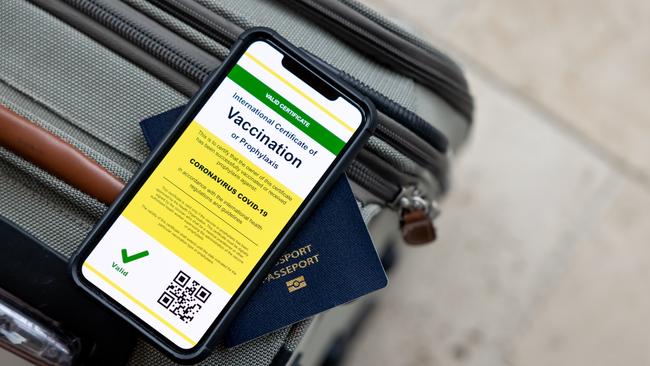
There are, on the contrary, arguments for restrictions of this kind that should appeal even to libertarians.
After all, no one has a right to impose a harm on others by negligently disregarding their rights and interests. And it is surely clear that negligently infecting another person with a potentially serious disease breaches their right to live safely and securely, undermining a fundamental freedom that governments have a duty to protect.
Indeed, for most accidental harms, the law of torts – which towering libertarians, such as Friedrich Hayek, have not only endorsed but eulogised – serves precisely that purpose, entitling the victim of a negligent act to rely on the coercive powers of the state to secure compensation from the act’s perpetrator.
Were tort law readily applicable to highly contagious diseases, it would not only help compensate victims; the threat of being sued would deter negligent transmission, inducing people to seek vaccination, or, knowing or suspecting that they have a communicable disease, to self-isolate.
There are, however, obvious difficulties in relying on the remedies offered by the law of tort to control the spread of Covid.
In part, those difficulties relate to the complexities of making out a case: it would, for example, be virtually impossible to unambiguously identify the culprits in a lengthy chain of transmission.
But even if those issues could be addressed, many of the costs of Covid do not fall on those who catch the disease; they are instead borne by society as a whole, through broader economic and social losses that tort law is neither designed to recover nor to effectively prevent.

And with an infection that can spread explosively, it is surely preferable to pre-emptively reduce the probability of outbreaks, rather than relying, almost certainly unsuccessfully, on private legal action to pursue those who helped trigger an outbreak once it had occurred.
Given those difficulties, other instruments – such as “vaccinal passports” – must fulfil the functions that tort law cannot serve, including preventing immediate harm and encouraging the taking of reasonable precautions.
Moreover, since those other instruments are merely regulatory substitutes for the (coercive) law of tort, it is scarcely sensible to criticise them for being coercive; rather, the only real issue is whether they are more coercive than they need to be.
Inevitably, the answer to that question depends on an assessment of the facts.
If one believes that Covid is not a serious disease, then any restriction on the unvaccinated is plainly unjustifiable. And much the same would hold were vaccination ineffective or unduly dangerous. But if one accepts the Doherty Institute report and the latest modelling by the US Centres for Disease Control, the picture is altogether different.
Those studies suggest that the unvaccinated are about five times more likely than the vaccinated to catch Covid. Even assuming that the unvaccinated and the vaccinated transmit the disease at exactly the same rate, that implies that adding just one unvaccinated person to a group of five people who are vaccinated doubles the risk of there being a person in the group who has Covid.
Clearly, the overall danger that poses depends on the likelihood that the infection will be passed on, seeding a major outbreak; the higher the proportion of the population that is vaccinated, and the better the quality of contact tracing and isolation, the lower must be the probability of an uncontrolled outbreak.
But even putting aside the possibility of further spread, the fact that about 7 per cent of the symptomatic cases among the vaccinated are sufficiently serious as to require hospitalisation provides some basis for policy measures that limit the scope for contagion by restricting the unvaccinated’s access to crowded places. And where the contagion would affect very vulnerable groups – as in aged-care homes or in hospitals – the case for restricting access by the unvaccinated is overwhelming.
Those measures may seem harsh but they are hardly discriminatory: far from treating like unalike (which is the essence of discrimination), they differentiate on the basis of a crucial difference, namely the risk of infection.
However, the function of the restrictions is not to simply reduce the immediate likelihood of transmission; it is also to encourage the unvaccinated to seek vaccination. They therefore resemble punishments, which, when taken to an extreme (as in “no jab, no school” policies), can make vaccination virtually mandatory.
Presumably, the goal being pursued is that of achieving a level of vaccination in the community that is sufficient to reach a degree of herd immunity, reducing the need for costly lockdowns.
Just how high that level has to be is controversial; what is certain is that any gains from herd immunity, once it is achieved, flow to both the vaccinated and unvaccinated, in terms of reduced risk of illness and improved quality of life. And because the unvaccinated stand a far higher chance of catching the disease and dying from it, they derive a substantially greater benefit than do the vaccinated from herd immunity being reached.
To that extent, the unvaccinated free-ride on a benefit they have done nothing to secure, other than by making a trivial contribution to the fiscal cost of the vaccines. It could be argued that their free riding on the risks and inconvenience borne by the vaccinated causes no harm, as the benefit remains intact, at least in the short term; but it is reasonable to suggest that a free society will struggle to survive if the principle of mutual obligation can be lightly disregarded, including when it comes to sharing the cost of vital public goods. Rather, just as refusing to be conscripted in times of war should not come cheaply, so the refusal to be vaccinated when one readily and safely could ought to come with hurdles and burdens attached.
Of course, it may be that imposing any such penalties will prove unnecessary. Perhaps the intense fear of Covid that has gripped Australia will make very high levels of vaccination easy to achieve. But even if it did, there would still be a risk that when the vaccinations have to be renewed, the passage of time will have dulled the panic, causing herd immunity, and the benefits it brings, to be lost.
Having lived in fear for the past two years, wouldn’t it be ironic if now all we had to fear was the waning of fear itself?








It is undoubtedly true that preventing people who choose not to be vaccinated from engaging in activities that are open to the vaccinated involves a degree of coercion. But that hardly means any such restrictions ought to be opposed by those who place a high value on liberty.